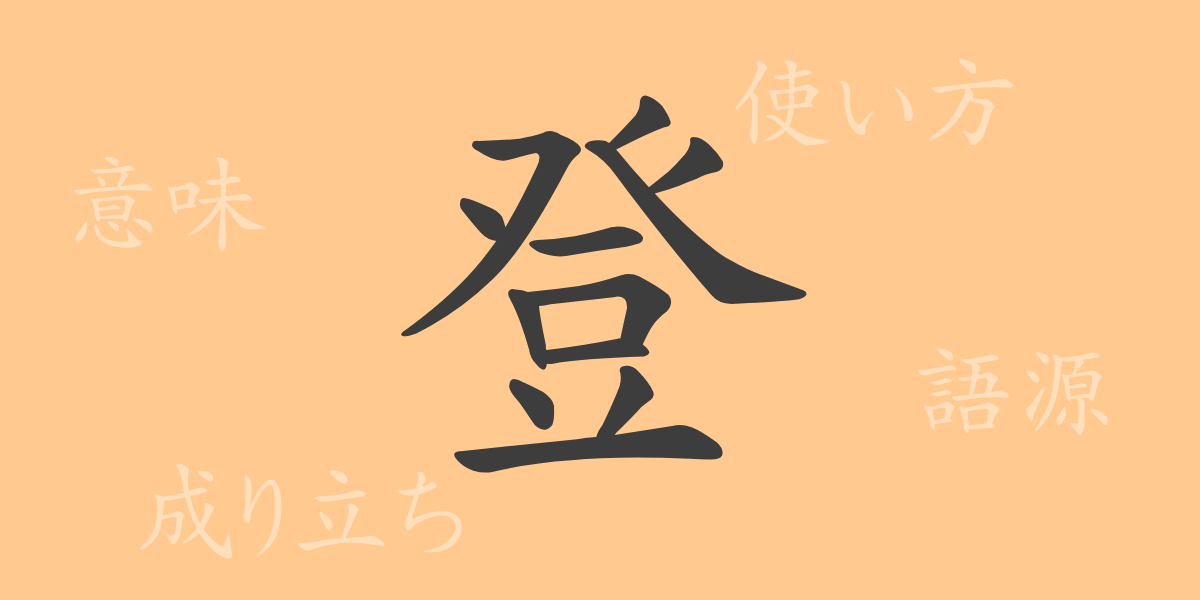Kanji in Japanese is known for its richness in shape and meaning, symbolizing the depth of Japanese culture and language. ‘登 (とう)’ is one of the commonly used Kanji we often see in our daily lives. In this article, we delve into the deep world of ‘登’, from its origins to its meanings, usages, readings, phrases, and idioms, exploring the profound dimensions this single character encompasses.
Origins of ‘登 (とう)’
The Kanji ‘登’ originated in ancient China, consisting of ‘止’ symbolizing a footstep, and ‘癶’, depicting the action of surpassing footprints to ascend to a higher place. ‘止’ denotes feet or stopping, thereby originally ‘登’ depicted the action of following footsteps to climb to higher places.
Meaning and Usage of ‘登 (とう)’
‘登’ primarily means ‘to climb’ or ‘to ascend’. It is used in contexts like climbing mountains or stairs and rising in status or condition. Additionally, it is employed in terms like ‘appearance’ or ‘registration’, indicating the act of someone or something entering a scene.
Reading, Stroke Count, and Radical of ‘登 (とう)’
The Kanji ‘登’ has various readings, and its application dictates whether on’yomi or kun’yomi is used.
- Readings: On’yomi ‘トウ’, ‘ト’, Kun’yomi ‘のぼる’
- Stroke Count: 12 strokes
- Radical: 癶 (はつがしら)
Phrases, Idioms, and Proverbs Using ‘登 (とう)’
Many phrases and idioms include ‘登’, each with unique meanings and nuances.
- 登山 (とうざん) – Climbing to the summit of a mountain.
- 登校 (とうこう) – Going to school.
- 登録 (とうろく) – Registering a name or data in a record.
- 登場 (とうじょう) – A character appearing in a story or play.
- 登用 (とうよう) – Promoting someone to a higher position.
Conclusion on ‘登 (とう)’
The Kanji ‘登’ is a character we frequently encounter in our daily lives, expressing various concepts of ‘ascending’, from climbing mountains to rising in societal status. Understanding the rich meanings and applications of this character deepens our understanding of Japanese. Through this exploration, if you have come to appreciate the unique charm of ‘登’, it would be our pleasure.

























